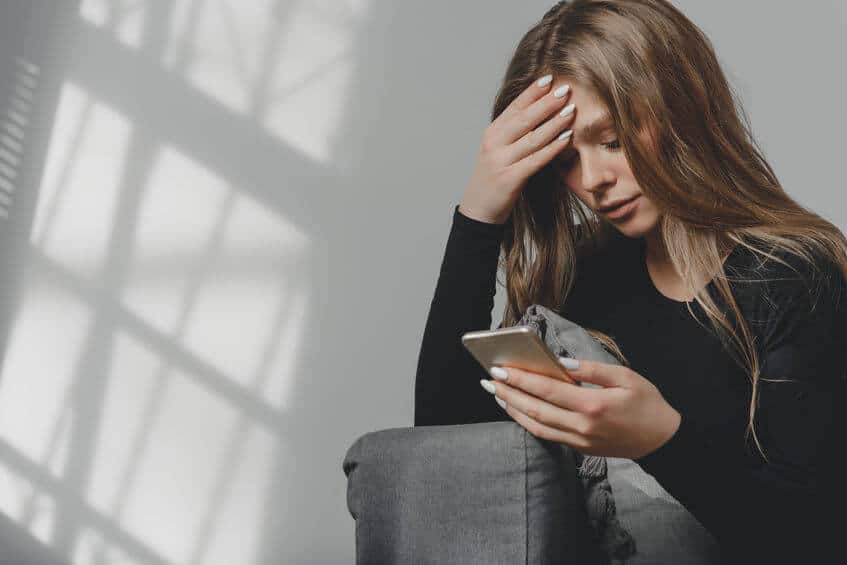In today’s world, social media platforms like Facebook, Instagram, Twitter, and TikTok are part of our everyday routines. They help us stay connected with people everywhere and give us a place to express ourselves. However, they also come with many risks to our mental health. This article looks at the various ways social media impacts our mental well-being, highlighting both the positives and negatives.
Positive Effects of Social Media on Mental Health
1. Connection and Support:
Social media allows individuals to stay connected with family and friends, regardless of geographical barriers. For many, especially those living far from loved ones, this connection can provide emotional support and reduce feelings of loneliness.
2. Awareness and Education:
Social media serves as a powerful tool for raising awareness about mental health issues, reducing stigma, and promoting mental health literacy. Campaigns and personal stories shared on these platforms can encourage individuals to seek help and support.
Educational content related to mental health, including coping strategies, mindfulness techniques, and information about mental health conditions, is widely accessible, empowering users to take control of their mental well-being.
3. Opportunities for Expression:
Social media provides a platform for creative expression and self-presentation, which can be therapeutic for many individuals. Sharing artwork, writing, or personal stories can foster a sense of achievement and self-worth.
Negative Effects of Social Media on Mental Health
1. Comparison and Self-Esteem:
Social media often portrays an idealized version of life, leading users to compare themselves with others. This comparison can result in feelings of inadequacy, low self-esteem, and depression.
The constant exposure to curated, filtered images can create unrealistic standards of beauty and success, contributing to body image issues and eating disorders.
2. Cyberbullying and Harassment:
Online harassment and cyberbullying are significant concerns on social media platforms. Victims of cyberbullying may experience severe psychological distress, including anxiety, depression, and in extreme cases, suicidal thoughts.
The anonymity provided by the internet can embolden individuals to engage in harmful behaviors without facing immediate consequences, exacerbating the impact on the victim’s mental health.
3. Addiction and Distraction:
The design of social media platforms often encourages prolonged use, leading to addictive behaviors. Excessive use of social media can interfere with daily activities, sleep patterns, and productivity, contributing to stress and anxiety.
The constant influx of notifications and information can be overwhelming, leading to cognitive overload and difficulty concentrating on tasks.
4. Fear of Missing Out (FOMO):
Social media can create a fear of missing out, where individuals feel the need to stay constantly connected and updated. This can lead to anxiety and compulsive checking of social media accounts, disrupting daily routines and affecting mental health.
Balancing Social Media Use for Better Mental Health
While social media can have detrimental effects on mental health, there are strategies individuals can adopt to mitigate these risks:
1. Set Boundaries: Limit the amount of time spent on social media each day. Use tools and apps that track usage and set reminders to take breaks. Avoid social media use during certain times of the day, such as before bed, to ensure it does not interfere with sleep.
2. Curate Your Feed: Follow accounts that promote positivity, mental health awareness, and realistic portrayals of life. Unfollow or mute accounts that trigger negative emotions or comparisons. Engage with content mindfully, focusing on posts that add value to your life and well-being.
3. Practice Digital Detox: Periodically take a break from social media to reconnect with the offline world. Use this time to engage in activities that promote mental well-being, such as exercise, hobbies, and spending time with loved ones.
4. Seek Support: If social media is negatively impacting your mental health, consider seeking support from a mental health professional. Therapy can help develop coping strategies and address underlying issues related to social media use.
Book Your Appointment at Kazmo Brain Center
Social media is a double-edged sword with the potential to both positively and negatively impact mental health. Constantly comparing yourself to others and their so-called life on social media can give you anxiety and maybe cause you to be depressed.
And let’s not forget the short attention span that results from scrolling all the time.
At kazmo Brain Center, we have therapy sessions that can help you break out of the infinite loop of social media. Book your appointment and let us help you.
Read more: What Is Emotional Validation?







